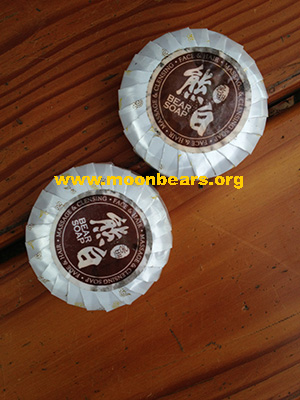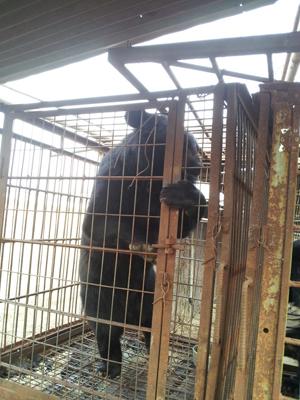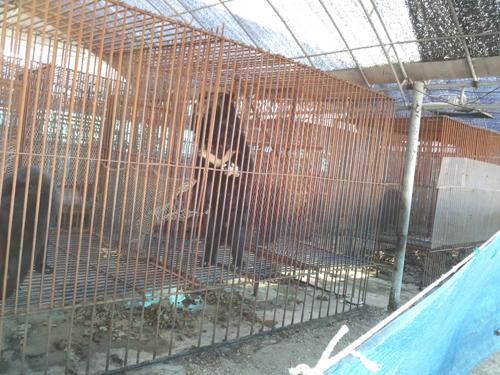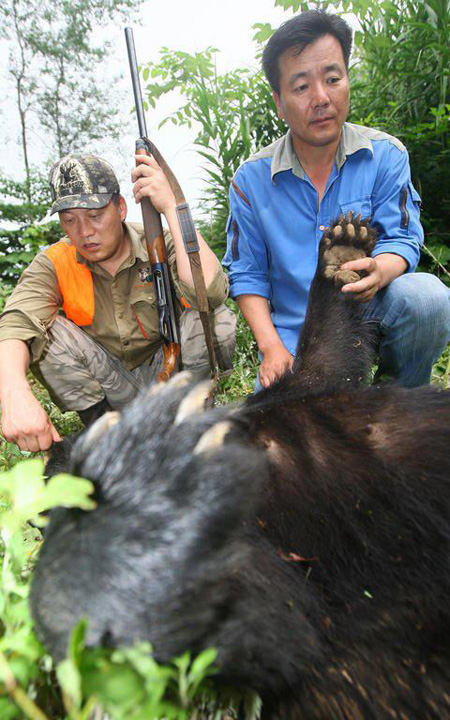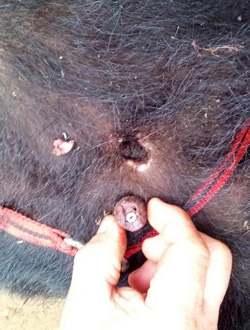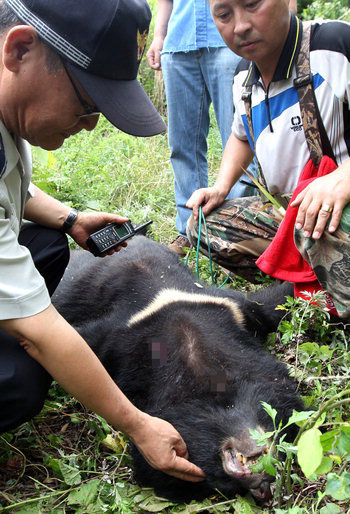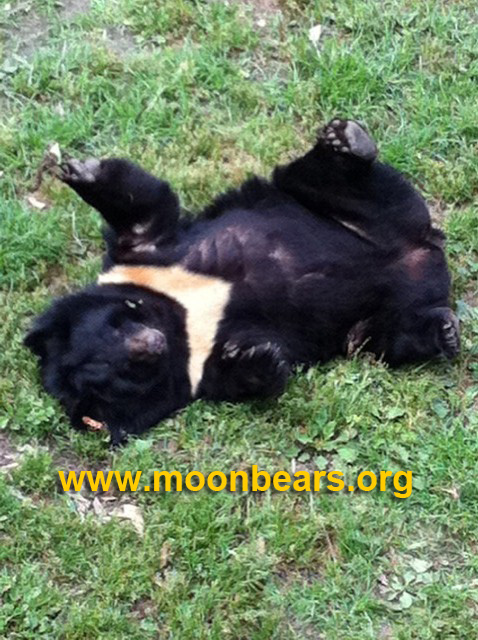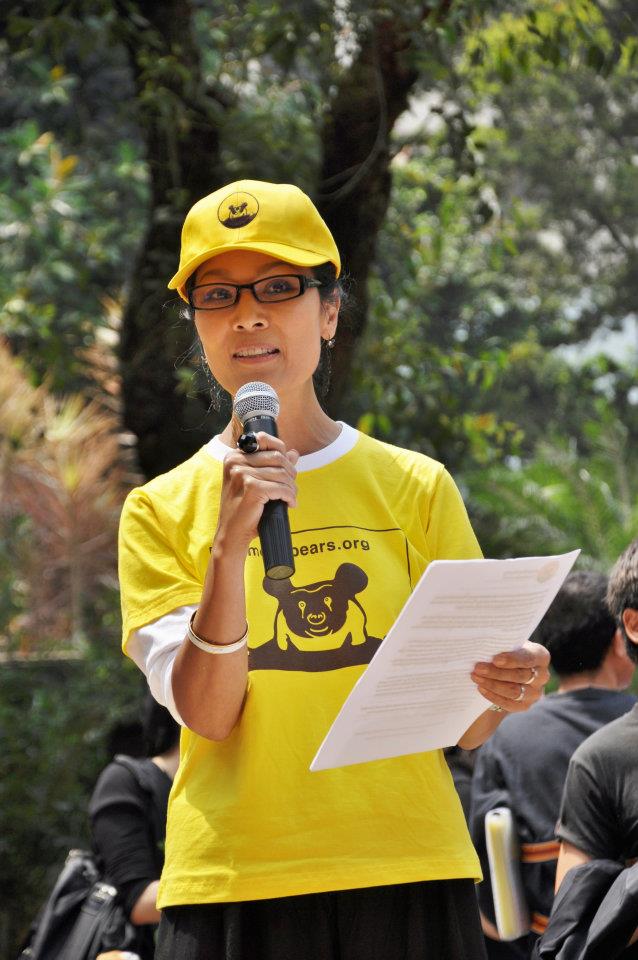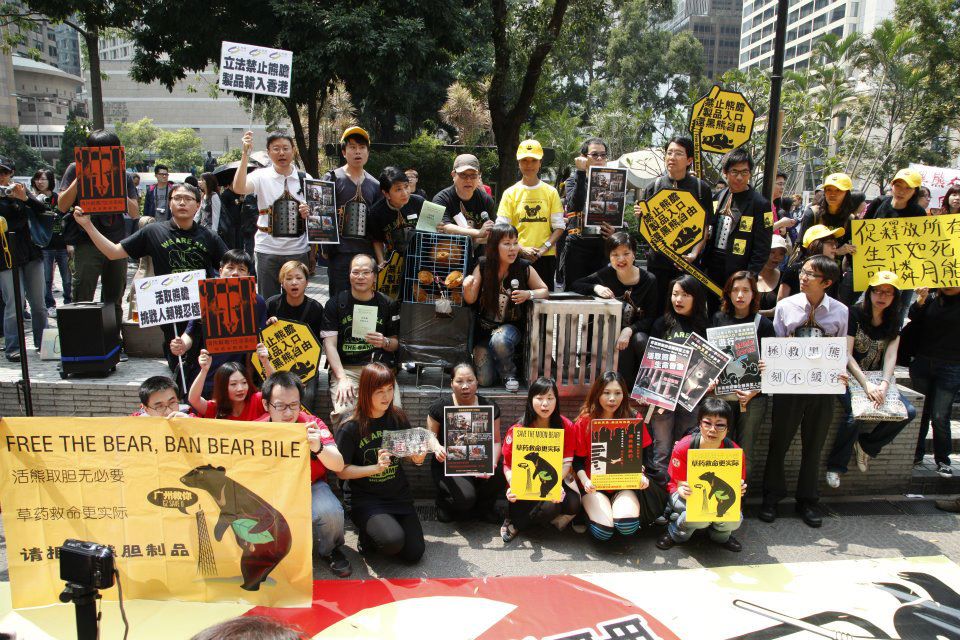
Sept 14, 2012 – A great day for bears.
The International Union for Conservation of Nature (IUCN) World Congress passed a resolution calling for the phase out of bear farming in 4 of the 5 『bear farming countries'; specifically mentioning Korea and Vietnam. The IUCN is the world's oldest and largest global environmental organization, so resolutions passed by the IUCN are highly influential in determining the direction of world conservation methodology.
For the eradication of bear bile farming, this is one giant step in the right direction.
Though the resolution, (printed in full below), does not call for the complete phase-out of bear farming in China, it implements a cap on the present number of bears and number of bear farms permitted and an in-depth analysis of the current status in China.
The resolution calls for a 「scientifically-independent, peer-reviewed situation analysis」 (with IUCN involvement) to examine the bear farming industry in China in order to establish appropriate future measures. Additionally, it calls for establishing 「a scientifically-sound monitoring system to track trends in wild bear populations and the factors that drive these changes」.
We commend lobbyist Dave Garshelis of The Bear Specialist Group for his efforts – and appreciate that this development is the result of the efforts of many.
The next test for Korea will be whether or not the Ministry of the Environment allocate funds in their 2013 budget to implement an end to bear farming.
M027 (Motion in full)
Bear farming in Asia, with particular reference to the conservation of wild populations
NOTING that the Asiatic Black Bear (Ursus thibetanus) is listed as Vulnerable on the IUCN Red
List of Threatened Species, as a result of habitat loss and over-exploitation principally for the
bile;
ALSO NOTING that the Sun Bear (Helarctos malayanus) is listed as Vulnerable to extinction in
mainland Southeast Asia for the same reasons;
RECOGNIZING that, since the 1980s, large numbers of both species, especially Asiatic Black
Bears, have been kept in captivity for the collection and commercial sale of their bile (henceforth
called farming), and this has significantly increased the availability of bile intended to meet the
needs of patients;
OBSERVING that evidence of a cause-and-effect relationship (positive, negative or none)
between increased supply and use of farmed bear bile and the exploitation of wild bear
populations is lacking;
CONCERNED that, in some cases, bear farming is poorly managed and regulated, often
involving inappropriate husbandry, which impacts adversely on their health, ability to breed and
causes increased mortality, thus prompting some farms to restock bears obtained illegally from
the wild, which has adversely affected some wild populations;
NOTING that the increased production of bile from farms has led in some cases to it being used
to maintain general health (not just to cure specific ailments) and also for other conditions not
prescribed in traditional medicine (despite these uses having been prohibited since 1998 and
2005 by different agencies in People's Republic of China);
FURTHER NOTING that the practice of bear farming for the collection of bile is legally
conducted in some countries in Asia, and remains illegally practiced in others;
MINDFUL that the Asiatic Black Bear and Sun Bear are both listed on Appendix I of the
Convention on International Trade in Endangered Species of Wild Fauna and Flora (CITES),
yet bile products from wild and farmed bears are illegally moved across national borders, in
violation of this Convention;
ACKNOWLEDGING that some countries are moving towards the elimination of bear bile
farming: the Republic of Korea banned live bile extraction and is currently considering how
it may end bear farming, and the government of Socialist Republic of Viet Nam banned bile
extraction and bear bile sales and is currently working towards ending the practice of keeping
bears in captivity for commercial exploitation because of animal welfare and conservation
concerns; and
ALSO ACKNOWLEDGING that significant advances have been made in the captive breeding of
bears in farms in some areas in the People's Republic of China;
The World Conservation Congress, at its session in Jeju, Republic of Korea, 6–15
September 2012:
1. ENCOURAGES the Republic of Korea and Socialist Republic of Viet Nam to continue their
efforts towards ending bear farming;
2. URGES range state governments, working where appropriate with IUCN, to:
a. Close down illegal farms as soon as possible;
b. Issue no further licenses or permits for farms, and establish no new farms or new subsidiary
operations of existing farms;
c.
Take all necessary steps to prevent the increase in numbers of bears in existing farms as soon
as possible;
d. Take increased measures to ensure that no more bears from the wild enter farms;
e. Ensure that products from existing, legal farms can only be used for legally approved
medicines;
f. Conduct research to identify substitutes for bear bile, and to promote the use of these
substitutes;
g. Establish a scientifically sound monitoring system to track trends in wild bear populations and
the factors that drive these changes.
h. Undertake a scientifically independent, peer-reviewed situation analysis of progress on the
points listed above, and report back to the next session of the World Conservation Congress.
3. RECOMMENDS that Parties to CITES fully implement legislation to prevent illegal
international trade in Asiatic Black Bears and Sun Bears and their parts and derivatives, and
promote greater public awareness of these issues.
Sponsor:
Alertis- fund for bear and nature conservation, Netherlands
Co-sponsors:
Wildlife Trust of India, India
Wildlife Trust of Bangladesh, Bangladesh
Wildlife Conservation Society, USA
Conservation International, USA
British and Irish Association of Zoos and Aquariums, United Kingdom
Centre for Marinelife Conservation and Community Development, Viet Nam
Japan Wildlife Conservation Society, Japan
Malaysian Nature Society, Malaysia

